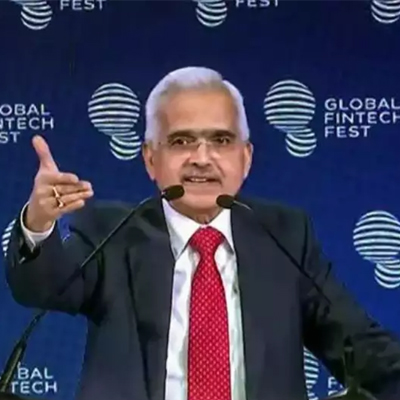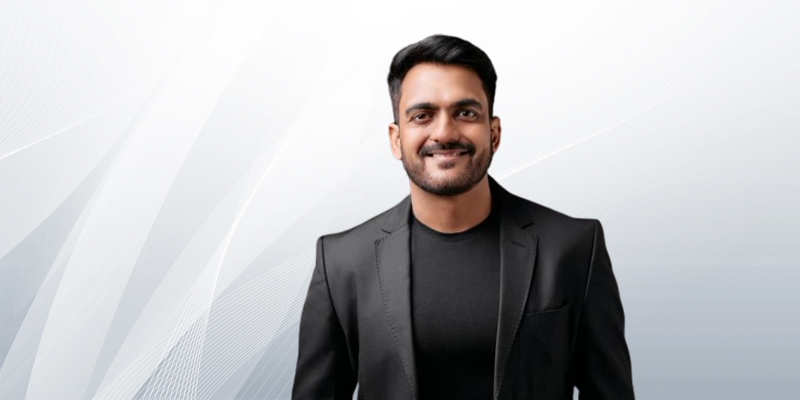Higher Education for a Sustainable Future of Work
2.jpg)
Capt. A. Nagaraj Subbarao, PhD, Professor of Strategy & Leadership | Dean - SCMS
Since WW II, the world has seen unprecedented progress and peace. Colonies were being freed, industry was booming, and the general populace was getting more prosperous. However, few will argue that the pandemic has laid bare that old paradigms need to change, and higher education is at the pinnacle of that change.
With the wars in Europe and the Arab world, this fresh look at many of the things we have assumed to be genuine needs to be looked at afresh and new solutions found. The pandemic and wars showed that sophisticated intelligence mechanisms fail, and the consequences can be problematic when they do. At the cusp of events is the education system and, more so, the higher education apparatus.
What has this got to do with higher education? It is vital that as we go ahead and where young nations like India put large numbers of young men and women into the workplace, education needs to be accessible for the vast majority who seek it. The brick-and-mortar model that most swore to will need to cede ground, and universities seriously consider adopting a more hybrid education model. To that end, universities need to act speedily to break down hurdles to access and reach a more diverse population of students in the pipeline to higher education, pay attention to the needs of a rapidly changing workforce, and provide life-long learning methods and career opportunities for working people.
On the surface, universities are a great idea. A student enrols, learns from the experts, and leaves being job- and future-ready. This paradigm has worked over the last century or so. The reason why so many people decide to go to college, even if it means making enormous financial and personal sacrifices, including staying away from a job and a salary for an extended period. Yet even though so many people are doing it, it still needs to be a good thing to do in a changing world. While there is generally a cost – in terms of employment prospects – of not having a college degree, there are not always clear competitive advantages in having one, mainly if the quality of learning has been poor. In today's digital-first world, we need to educate every generation on how to learn, unlearn, and relearn — rapidly — so they can transform the future of work rather than be transformed by it.
"Higher education embodies an unending odyssey, transcending mere degrees. It’s a ceaseless quest for adaptability and continuous learning while navigating an ever-evolving educational landscape."
If you listen carefully to industry leaders, there is a recurring theme. Employers need more skills than just knowledge or degrees. The industrialized world is experiencing an unprecedented job boom. There has never been a better time in history to find work — this should no doubt be cause for celebration. While the number of college graduates keeps rising, there is a general question of how university qualifications translate to work, with many employers expressing reservations about graduates' job readiness and potential to add immediate value to the workplace. For example, employers often complain that even when graduates come with fantastic academic credentials, they will probably not have learned what they need to know to be able to do their jobs. It is also clear that many people often end up in careers not even aligned with their education. Things get even more complicated when we consider that a substantial proportion of future jobs will be hard to predict, except that they will require a hugely varied set of skills than most graduates today. That's why the potential and career sustainability of the future workforce will depend on its ability to be open to experience and cultivate learnability rather than displaying lots of college credentials.
We also need to pause and understand the role of higher education. We know that there are no easy methods to developing the attitudes and habits of the mind and heart that, over time, enable people to deepen their knowledge base, develop resilience, be action-oriented, and creatively juggle and evaluate competing ideas and approaches to arrive at better and more egalitarian solutions for society. These are the competencies needed to explore alternative responses to new challenges presented by the changing nature of today's jobs or for work not yet invented, and they need to be transferrable! Workplaces, societal institutions, and the world order will only get more complex and challenging to negotiate and manage, calling for the need for people with accumulated wisdom, interpersonal and practical competence, and depth of critical thinking, analytical reasoning, and altruism. A university is not just a training ground for skills but a crucible where many of the qualities essential for the survival of humankind are forged and developed. Society needs universities and not just training institutions where a young person learns a way of life. Universities are also places where myriad ideas float across disciplines, allowing an exciting possibility of cross-functional learning in a liberal ecosystem. Can medical scientists deduce with certainty the effect on the brain and body as we read a passage from the great Indian poem Shakuntala by Kalidasa (4 -5 Century CE) in a management class on ethics? Sample this from the poem as King Dushyant, one of the main protogonists, on a hunting expedition, is accosted by an indignant hermit: Slay not, O mighty sovereign, slay not a poor fawn who has found a place of refuge. No, surely, no; he must not be hurt. An arrow in the delicate body of a deer would be like fire in a bale of cotton. Compared with thy keen shafts, how weak must be the tender hide of a young antelope! Replace quickly, oh! Replace the arrow which thou hast aimed. The weapons of you kings and warriors are destined for the relief of the oppressed, not for the destruction of the guiltless.
There is a great deal that we need to re-evaluate about the incumbent model of higher education in the context of our changing world. Tomorrow belongs to the companies and individuals approaching education in parallel with work, with continuous learning loops. Success in the future won't be defined by a degree but by potential and the ability to learn, apply, and adapt. Institutions at all levels need to work on innovation at the workplace and the ability to develop an entrepreneurial mindset for their students. Technology is a great harbinger of change. Higher Education needs to bring technology into the curriculum in all programs whatever their disposition and prepare students for a career where they will need to work with technologies as an augementor in their work.
At the heart of any paradigm shifts in higher education, essentially required is a willingness by the administration and faculty to embrace new methods of governance processes, structures, and performance measurements. For a sustainable career and enriched life, the young must temper their expectations and develop skills and competencies that add value to themselves and their organization. Creating a sustainable education model will take students, teachers, administrators and society in general to make some hard choices because the future is upon us, and it is different!
The journey into industry
Capt. A. Nagaraj Subbarao currently serves as the Dean at the School of Commerce & Management Studies, Dayananda Sagar University in Bengaluru. He embodies a diverse and extensive blend of expertise. With a background steeped in maritime navigation, he began his illustrious career as an officer in the Merchant Navy, amassing over two decades of commanding state-of-the-art ships globally.
Transitioning seamlessly to academia, his tenure spans 16 years, marked by teaching, publishing, and administrative roles. Co-founding a consultancy over a decade ago cultivated his entrepreneurial acumen, offering a distinct leadership perspective. His extensive experience in marine engineering projects and ship repairs across diverse cultures honed his adaptive leadership skills.
A prolific writer and avid social media figure, his articles command a significant following. Sports shaped his character, representing his country in cricket and table tennis at the national junior level, instilling resilience and grace in both victory and defeat.
With a research focus on Education, Leadership, Strategy, and Cross-Cultural Management, he's a driving force in Executive Education Programs, designing and executing successful programs at renowned universities. His forte in Organization Development & Change Management centres on fostering cultures that breed competitive advantage and robust leadership.
Inspired by the Bhagavad Gita's verses and Mark Twain's unconventional educational ideals, Capt. A. Nagaraj Subbarao champions the value of experiential learning beyond traditional academic pathways. His career exemplifies this ethos, advocating for diverse educational journeys beyond the norm.
.jpg)
.jpg)
.jpg)
.jpg)



